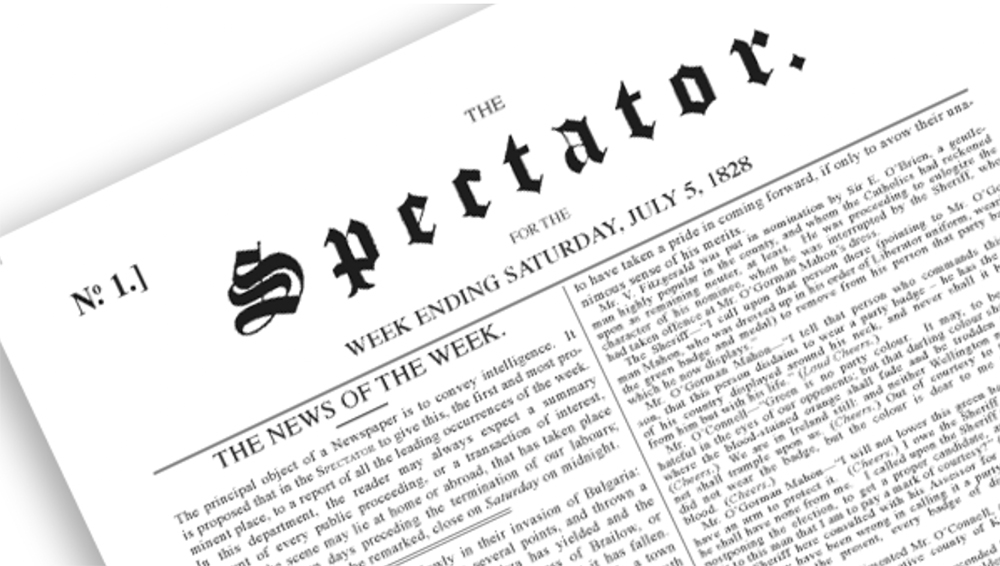Friends in Calais invited me to their baby’s birthday party. He’s a year old. They suggested an overnight stay and I planned to reach France by about mid-afternoon and have a stroll, visit the sights, buy a bit of tat for the nipper and a litre of plonk for the proud parents.
Clouds of sweet diesel vapour enveloped me. My pulse quickened. In the 1970s, it all smelt like this
The morning express sped me south and I was entertained on board by the Bing-Bong Pixie who referred to the train as ‘this 10.02 service from London Victoria to Dover Priory’. She recited the name of every stop on the line and repeated it twice each time we reached a new station. Her chirpy tone concealed a rather malevolent side. She seemed convinced gangs of fare–dodgers were operating on the train. ‘This service is patrolled by uniformed and plain clothes revenue protection teams,’ she said. I was surprised to be treated like a criminal by this paranoid robot and decided to raise it with the inspector when he arrived. Or just punch him. ‘Abusive behaviour will not be tolerated,’ said the Bing-Bong Pixie. Telepathic, apparently.
At Dover, bad news. I’d missed the 2 p.m. sailing. The ferry itself wasn’t due to leave for 90 minutes, but I was prevented from joining the shuttle bus that conveys foot passengers to the ship. Embarking via the gangway is a privilege reserved for the crew these days, and a foot passenger, like me, becomes the property of the bus driver, whose timetable is random and inflexible. Deaf to my pleas, he left me on the docks as he motored away.
With two hours to kill in Dover, I visited the Bronze Age Boat Gallery, whose impressive collection of maritime treasures cast a mood of fatigue and drowsiness over me for some reason. To revive my spirits I tried the local Wetherspoons, the Eight Bells, which is an excellent boozer. Friendly staff, smart uniforms, no music and a background murmur of elation generated by the serving of ale at noon. Finding an empty table, I plugged in my laptop and tapped away at my latest playscript. I can work anywhere, in any setting, as long as the people near me don’t mind the muttering noises. I speak phrases out loud as I write them, which is unusual apparently, according to several librarians.
Back at the docks in late afternoon, I managed to board the shuttle bus, which travelled a few hundred yards and parked next to the mighty white flanks of the ferry. There it stayed for 45 minutes, engine throbbing, Greta-fumes pouring from the exhaust pipe, while the driver chatted to his mates over the walkie-talkie. Then, in response to some unknown signal, he released the brakes and steered the vehicle over a pontoon bridge and into the ship’s cavernous innards. The doors heaved open and I stepped out on to the car-deck. Clouds of sweet diesel vapour enveloped me. My pulse quickened. My lungs filled with half-forgotten delights. Back in the 1970s, everywhere smelt like this.
I climbed a flight of stairs and emerged into a cafeteria which was full of Brits with fridge-sized suitcases and oval children waddling about on sunburnt trotters, wolfing crisps and guzzling pop. I couldn’t help noticing the curious resemblance between a traveller and his luggage. Fat tourists carried enormous bags while skinny ones seemed to fit everything into a pencil case. The seas were calm and we sliced through the rippling waves at ramming speed. As we approached the harbour, I spotted the Beffroi de Calais, a red-brick clock-tower roughly the size of Big Ben, which stands about half a mile inland. ‘Ten mins,’ I texted my friends. Phew. I’d arrived. But an hour later I was still stuck on the aft deck waiting for the cars and the juggernauts to mooch off the ship at the pace of sand-crabs. The foot passengers were told to hang around while the petrol–heads got to scoot away first. But by now I was used to the petty rules enforced by our cheerless overlords. ‘Stand here… Line up there… Loop this security tag around your luggage… Refrain from making noises in the Silent Zone.’ And anyway, I was home and dry. Liberty was mine.
An hour later I was still stuck on the aft deck waiting for the cars and juggernauts to mooch off the ship
I boarded the shuttle bus, which trundled out through the bow-doors and headed into town. ‘Three mins,’ I texted my friends. ‘Our aptmnt nxt 2 Calais-Fornia surf shop,’ they replied. ‘CU soon,’ I texted back. A rash prophecy. As we left the docks, the driver sped up and motored east for three miles, depositing us next to a hulking glass office in a wasteland of concrete flyovers and semi-arable scrubland.
The sun was setting. A chilly wind blew and the skies were darkening as I trekked back into town. Finally I reached the party. A gift for the baby? No, sorry. But it didn’t matter. He was asleep. Plonk for the parents? Nothing, I’m afraid. But that didn’t matter either. They were yawning and ready to crash out. I’d travelled for 11 hours and completed a journey of 96 miles. The following day my luck was better and I crossed the Channel shore to shore in four hours and 37 minutes. Next time, I’ll swim – it’ll be quicker. But I doubt if there’ll be a next time.








Comments